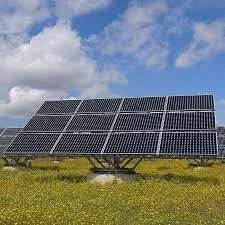Home Solar Solutions for Sustainable Off-Grid Living and Energy Independence.
Off-Grid Solar Systems for Homes A Sustainable Solution
In today’s world, where environmental concerns are more pressing than ever, finding sustainable energy solutions is crucial. An off-grid solar system for homes provides a renewable energy source that not only minimizes dependence on traditional power grids but also promotes a sustainable lifestyle. This article explores the advantages, components, and essential considerations of off-grid solar systems, making the case for their adoption in modern homes.
What is an Off-Grid Solar System?
An off-grid solar system is a self-sufficient energy system that does not rely on the conventional power grid. Instead, it harnesses solar energy through solar panels and stores it in batteries for use during times when sunlight is not available, such as at night or during cloudy days. This independence from the grid enhances energy security and can lead to significant cost savings over time.
Advantages of Off-Grid Solar Systems
1. Energy Independence One of the most significant benefits of off-grid solar systems is the independence from utility companies. Homeowners can generate their own electricity, reducing reliance on fossil fuels and mitigating the impact of fluctuating energy prices.
2. Environmental Impact By utilizing solar energy, off-grid systems reduce carbon footprints and contribute to a cleaner ecosystem. Solar power is a renewable resource, meaning it can be harnessed repeatedly without depleting the Earth's resources.
3. Cost Savings While the initial setup cost of an off-grid system can be high, the long-term savings can be substantial. Once the solar panels and storage systems are installed, the ongoing energy costs can drop significantly, especially with rising electricity rates from traditional sources.
4. Increased Property Value Homes equipped with solar power systems often see an increase in value. Buyers are increasingly seeking energy-efficient homes with lower operating costs, making a solar system a valuable asset.
5. Resilience in Emergencies An off-grid system provides a reliable power source during emergencies or natural disasters when the grid may be down. This aspect not only assures comfort but can also be crucial for powering essential medical equipment.
Components of an Off-Grid Solar System
An off-grid solar system consists of several key components
- Solar Panels These are the primary means of capturing sunlight and converting it into electricity. The number of solar panels required depends on the home’s energy consumption and location.
off grid solar system for home

- Inverter The inverter converts the direct current (DC) electricity generated by the solar panels into alternating current (AC) electricity, which is used by most household appliances.
- Battery Bank Batteries store excess energy produced during the day for use at night or during cloudy days. The size of the battery bank must be sufficient to meet the home’s energy needs during low production periods.
- Charge Controller This component regulates the voltage and current coming from the solar panels to the battery, preventing overcharging and prolonging battery life.
- Backup Generator While optional, a backup generator can be an essential component to ensure uninterrupted power supply during extended periods of low sunlight.
Considerations for Off-Grid Solar Systems
Before investing in an off-grid solar system, several factors should be considered
1. Energy Needs Homeowners should conduct an energy audit to understand their energy consumption patterns. This information helps in designing a system that meets their specific needs.
2. Location The efficiency of a solar system is heavily influenced by geographical location. Areas with higher sunlight exposure will yield more energy, making solar systems a more viable option.
3. Budget Initial costs can be intimidating, but potential return on investment must be weighed against long-term savings. Various financing options, including tax incentives and rebates, can help reduce upfront expenses.
4. Regulatory Considerations It’s essential to research local regulations and building codes related to solar installations. Some areas may have specific requirements or incentives for renewable energy systems.
5. Maintenance While off-grid systems generally require minimal maintenance, periodic checks for panel cleanliness and battery health are essential for optimal performance.
Conclusion
Off-grid solar systems present a powerful solution for homeowners looking to reduce their environmental impact and achieve energy independence. By investing in solar technology, individuals not only secure their energy future but also contribute to a larger movement towards sustainability. As awareness grows and technology advances, off-grid solar systems will likely become an increasingly accessible and widely adopted energy solution.
-
String Solar Inverter: The High-Efficiency Solution for Smart Solar EnergyNewsJul.14,2025
-
Revolutionizing Rooftop Energy with the Power of the Micro Solar InverterNewsJul.14,2025
-
Power Independence with Smart Off Grid Solar Inverter SolutionsNewsJul.14,2025
-
On Grid Solar Inverter: Powering the Future with Smart Grid IntegrationNewsJul.14,2025
-
Monocrystalline Solar Panels: High-Efficiency Power for the Future of Clean EnergyNewsJul.14,2025
-
Bifacial Solar Panel: A Smarter Investment for Next-Generation Energy SystemsNewsJul.14,2025







